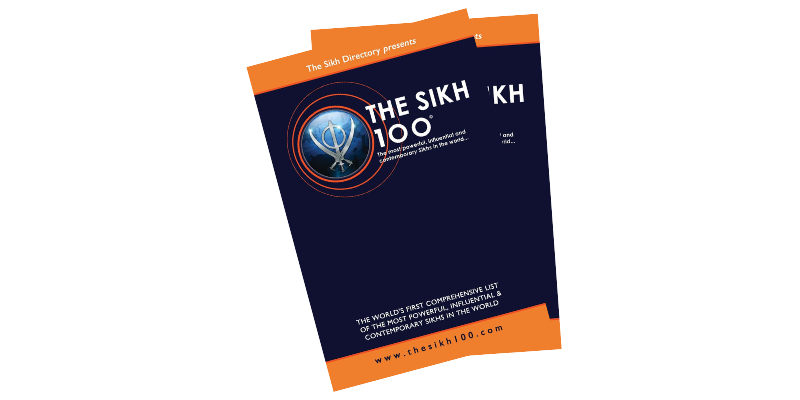With over 26 million Sikhs worldwide, the Sikh Dharam is the 5th largest religion in the world. It is, therefore, not only important, but also necessary to recognise the efforts of those Sikhs who have positively influenced the lives of others, either through their public persona, politics, charity or wealth. Such individuals can positively affect cultural and social attitudes wherever they live in the world. The ultimate aim of this venture is to inspire all generations to draw strength from their Sikh heritage and enable them to excel in their professional, academic and spiritual paths.
The Sikh Group compiles the Sikh 100 list by examining the contributions and impact that individuals have made from the hundreds of applications received through the website. Further consultations are made within the industry and also power brokers, lawyers, accountants, trusted advisors and other esteemed experts. All the information received is fully analysed before a decision is made to include an individual in The Sikh 100.
Margaret Thatcher once said “Power is like being a lady… if you have to tell people you are one, you aren’t.”
Anyone can have power and influence, however, what is important for the purpose of this list, is how an individual can balance the two. It is essential to have an understanding of the key principle of the Sikh Dharam, that ultimate power is in the hands of the Almighty.
There are seven types of power:
There are three types of influence:

You are great and all-powerful; my understanding is so inadequate, O Lord.
You cherish even the ungrateful ones; Your Glance of Grace is perfect, Lord.
You are eternal and all-powerful; I am a mere beggar, Lord.
I am intoxicated with the love of Maya — save me, Lord!
Bound down by greed, emotional attachment and corruption, I have made so many mistakes.
All that GOD does is perfect; it is neither too little, or too much.
O Nanak, knowing this as a Gurmukh, the mortal merges into God.
Highest of the High, above all is His Name.
Only one is as Great and as High as God.
He alone can know His Lofty and Exalted State.
I speak Truth, all should turn their ears towards it; he who is absorbed in True Love would realize the Lord.
If you desire to play this game of love with Me,
then step onto My Path with your head in hand.
When you place your feet on this Path,
give Me your head, and do not pay any attention to public opinion.
The Sikh 100 list carefully selects and analyses the suitability of each of the entrants based on the aforementioned criteria. Please complete and submit the online form and nominate a Sikh, who you think has extraordinary traits, including the power and influence to be included in next year’s Sikh 100.
Sources: Google, Factiva, Wikipedia, LexisNexis, Magazines, Newspapers, Websites, Facebook, Twitter, LinkedIn & The Sikh Group.
1
Anyone can have power and influence, however, what is important for the purpose of this list, is how an individual can balance the two.
2
Please complete and submit the online form and nominate any Sikh, who you think has extraordinary traits.
3
All nominations received are fully analysed before a decision is made to include an individual in The Sikh 100.
4
The Sikh 100 profiles a diverse representation of powerful, influential contemporary Sikh personalties.